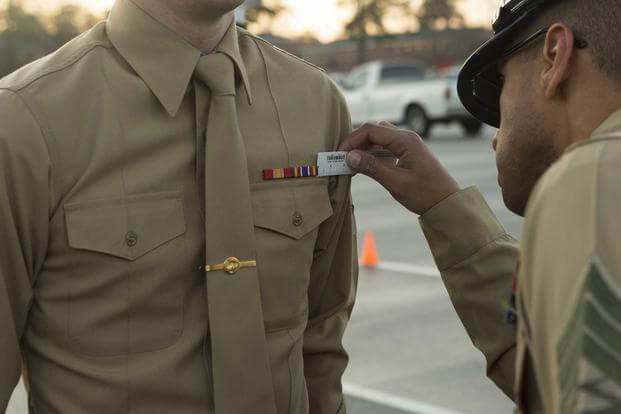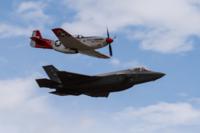The Department of Defense will no longer issue the Global War on Terrorism Medal to all service members, ending a two-decade period during which the award was given to everyone in the ranks to signify America's involvement in Iraq and Afghanistan.
The medal isn't going away; it's just becoming more selective. Starting Sept. 11, 2022, a service member must have worked directly for a counterterrorism operation for at least 30 days to receive the award.
"These changes were prompted by the DoD based on the withdrawal of combat troops from Afghanistan and the mission in Iraq now being an advise/assist/train mission," Army Maj. Charlie Dietz, a Pentagon spokesman, told Military.com in an email.
Read Next: Veterans Protest at US Capitol as Pressure Mounts on Senate Republicans over Toxic Exposures Bill
The Global War on Terrorism Medal has been given to nearly every active-duty, Reserve and National Guard service member since it was established in 2003.
Service members were eligible for the award by working directly or indirectly for support in anti-terrorism operations, which cast a broad net for anyone who served in nearly any position since Sept. 11, 2001.
The only major requirement was that a service member needed to serve for 30 consecutive days or 60 nonconsecutive days in support of a Global War on Terror mission to be eligible for the award.
Under the new guidelines, the definition will be more rigid and won't include those who indirectly offer administrative or logistics support for anti-terrorism missions.
Additionally, the Pentagon revised the criteria for the Inherent Resolve Campaign Medal. Previously, the award was given to those in the ranks who were attached to a unit in Iraq or Syria and served for 30 consecutive or nonconsecutive days.
As of July 1, the Inherent Resolve Campaign Medal will be awarded only to those who serve in Syria -- including the airspace and up to 12 nautical miles out at sea.
"With the termination of the combat mission in Iraq, personnel deployed to Iraq for Op Inherent Resolve are now recognized with the GWOT Expeditionary Medal," Dietz said.
The criteria change for the awards is small, but symbolizes a more gradual movement by the military and the country to signify a change in the United States' decades-long involvement in the Middle East following 9/11, although those decades have left a substantial toll.
The Costs of War Project at Brown University estimated that the cost of the Global War on Terror at $8 trillion and 900,000 deaths -- including U.S. service members, allied fighters, opposition fighters, civilians, journalists and humanitarian aid workers
Nearly 7,000 American service members died in Afghanistan and Iraq, a figure that doesn't include casualties from smaller U.S. operations in a handful of other countries.
"Twenty years from now, we'll still be reckoning with the high societal costs of the Afghanistan and Iraq wars -- long after U.S. forces are gone," Stephanie Savell, co-director of the Costs of War Project and a senior research associate at the Watson Institute, wrote in a September 2021 report from the organization.
The final Afghanistan evacuation effort in 2021 saw the last U.S. casualties of the war when a suicide bomber struck at the airport's Abbey Gate on Aug. 26, killing 13 troops -- 11 Marines, a sailor and a soldier; wounded more than 20 other troops; and killed or wounded hundreds of Afghans.
-- Thomas Novelly can be reached at thomas.novelly@military.com. Follow him on Twitter @TomNovelly.
Related: A Dozen Sailors Checked for Smoke Inhalation After USS Milwaukee Fire at Florida Naval Base














